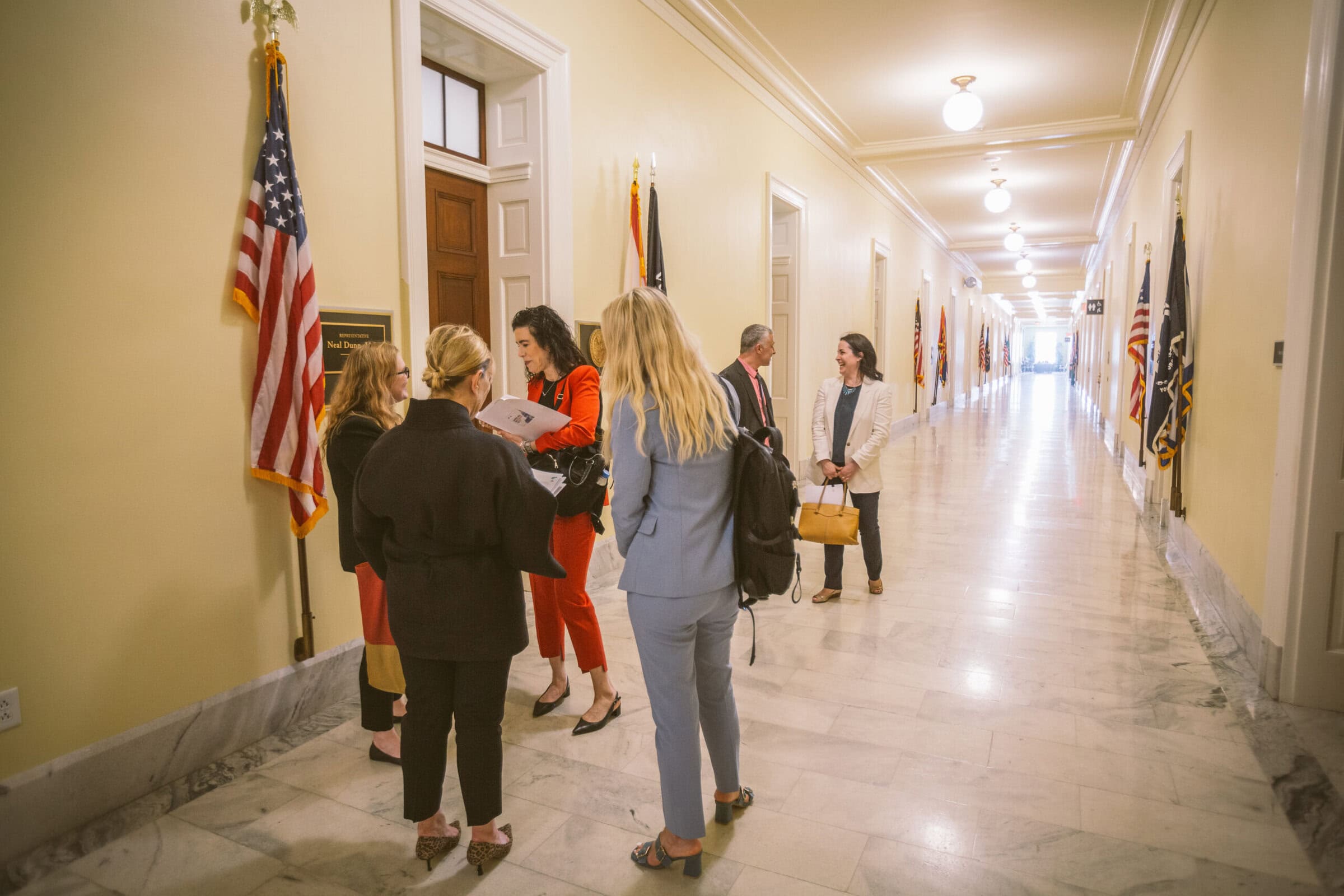Topic
- Government Relations
- Taxation
On January 23, the Maryland Supreme Court granted direct appeal of a trial court’s ruling that struck down the state’s first-of-its-kind tax on digital advertising in a suit brought by Comcast and Verizon. Maryland Comptroller Brooke Lierman asked the high court to review an October bench ruling by Anne Arundel County Circuit Court Judge Alison Asti finding that Maryland’s Digital Advertising Gross Revenues Tax is unconstitutional.
Enforcement of the tax has been stayed pending its resolution by the state Supreme Court.The state Supreme Court will hear arguments in the appeal in May. The justices are expected to render their decision by Aug. 31 in the case, Comptroller of Maryland v. Comcast of California/Maryland/Pennsylvania/Virginia/West Virginia LLC et al., No. 32 September Term 2022.
As part of the hearing, the Maryland Supreme Court justices will review Anne Arundel County Circuit Judge Alison L. Asti’s ruling that the state’s digital advertising tax violates the federal Internet Tax Freedom Act’s prohibition on discriminatory taxes on online services insofar as Maryland does not similarly tax non-digital advertising. In addition, the Maryland Supreme Court will examine Judge Asti’s decision that the law violates the First Amendment and that it contradicts the US Constitution’s prohibition on state interference with interstate commerce.
The legality of Maryland digital ad tax law is being watched closely by other states that have also weighed a similar tax for digital advertising. So far in 2023, Connecticut has introduced several digital advertising bills (HB 3573, SB 351, and HB 5658) and New York has introduced a data tax bill (S1845).
As enacted, Maryland’s digital advertising tax applies to gross revenue derived from digital advertising services; it has a rate escalating from 2.5 percent to 10 percent of the advertising platform’s assessable base based on their annual gross revenues from all sources (i.e., not just digital advertising, and not just in Maryland).
The graduated rate applies to tax entities with more than $1 million in gross revenues from digital advertising services in Maryland AND $100 million in annual gross revenues. However, it is not a typical progressive tax, as the rate applies to all taxed activity, not just the marginal amount.
Important for agencies, in 2021 the legislation’s lead Senate sponsor and President of the Maryland Senate, Bill Ferguson (D-46), clarified that he doesn’t believe that the tax would be levied against a company reselling ad space to a marketer client; instead, he explained that the legislative intention of the bill is to tax the digital company selling the original advertising space (i.e. Facebook, Google, etc.).
The 4As along with many other advertising industry partners submitted comments on the proposed regulations implementing the tax. The tax took effect beginning January 1, 2022, with the first filing obligation for large taxpayers beginning in April 2022. Final regulations operationalizing the procedures for assessing tax obligations are still vague. In spite of recent unfavorable legal updates, the Maryland Comptroller’s office has taken steps to issue the estimated tax forms needed to help covered entities to file their estimated quarterly tax payments as part of their obligations under the law.
A federal lawsuit, spearheaded by the US Chamber of Commerce, was dismissed in early December 2022. An appeal is pending in the Fourth Circuit appellate court.
Have questions about Maryland’s digital advertising tax or the related legal proceedings? Contact Amanda Anderson, 4As Director of Government Relations.
Related Posts



12/17/2025

